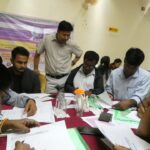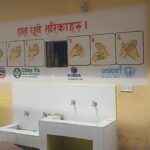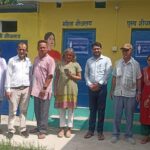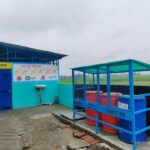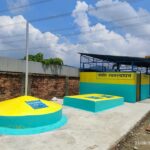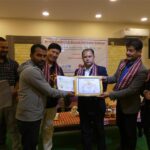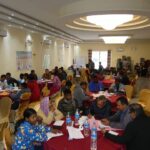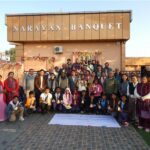Madhesh Province
IMPROVEMENT OF WASH-SERVICES
Support of the WASH supply

Place
14 Municipalities in Madhesh Province

Who
Implemented by Chay Ya Nepal,
14 Municipalities & local volunteers

Partners
UNICEF Nepal

When
2023 - 2024

For
372.418 residents

Status
Completed and handed over to the community
Project
Sustainable Development Goal (SDG) #6 prioritizes Water, Sanitation and Hygiene (WASH) through its targets 6.1 and 6.2: visualizing universal, sustainable, and equitable access to safe drinking water, sanitation and hygiene by 2030. SDG #3.8 pictures universal health access to safe, quality and affordable essential WASH services in healthcare facilities. Additionally, SDG #4.a.1 encourages WASH in the school sector through the construction and upgrading of educational facilities.
Despite progress in recent years, Madhesh Province has not reached these targets yet. For instance, 31 % of healthcare facilities there lack functioning toilet facilities for patients, 60 % do not have soap available, and 48 % do not safely dispose of sharp waste. Only 55 % of the local schools have toilets with water, and 45 % lack separate facilities for girls. On the household level, only 24 % of the population has access to safely managed drinking water facilities, 90 % still uses water contaminated with E. coli bacteria, and 16 % still reverts to open defecation.
Inadequate WASH services and behavior contribute significantly to the spread of waterborne diseases, which remain a major global public health concern. To address these problems, this program therefore focused on healthcare facilities, schools, and communities. By adopting a community-centric approach, we engaged local stakeholders and promoted their active participation. Communities took ownership of their WASH infrastructure, ensuring its long-term sustainability and effectiveness. Other important components were climate-resilience to promote disaster preparedness, gender-equality and inclusivity.
Chay Ya first assessed the situation on the ground and then provided technical designs for improved, inclusive and climate-resilient WASH infrastructure (incl. safe waste management), then supervised and assisted with the construction of new facilities wherever necessary. Additionally, our managers consulted and coordinated efforts between all stakeholders such as the provincial government, municipalities, school management committees, health care facilities etc. Most importantly, local stakeholders (such as teachers, healthcare staff, community leaders, mothers, people with disability, child clubs…) were trained to be able to maintain the facilities but also to raise awareness for “right” WASH behavior.
Local governments have committed to contribute 20 – 30 % of the costs.


